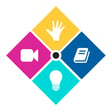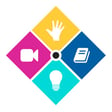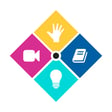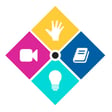Become a Creator today!Start creating today - Share your story with the world!
Start for free
00:00:00
00:00:01

Why do people fail the CHT
Transcript
CHT Exam Challenges
00:00:05
josh MacDonald
Hi, I'm Josh McDonald.
00:00:06
Miranda Materi
I'm random material and we are hand therapy Academy.
00:00:09
josh MacDonald
So let's talk a little bit about the CHT exam. We do tons on that and we love talking about it a bunch and all the different nuances of it. But let's talk a little bit about the people who struggle and don't pass and maybe some of the reasons why people don't pass and how we can kind of overcome those before you get there.
00:00:18
Miranda Materi
Yeah.
00:00:27
josh MacDonald
So hopefully some of those things don't happen to you.
00:00:29
Miranda Materi
yeah
Performance Anxiety in Exams
00:00:30
josh MacDonald
So, Brandon, what would you say is the one of the top reasons you feel like people don't end up passing?
00:00:35
Miranda Materi
I really feel like because it's usually I'm usually the one that's like mentoring people after they don't pass or they call, you know, I don't know. a seat It seems like we kind of have different roles. And that is one of my roles. So and I spent a lot of time like interviewing and meeting with these people. And I really feel um like it's related to performance anxiety. So a lot of times these people that are going in,
00:00:59
Miranda Materi
And taking the exam they have so much anxiety They can't even think straight right because I've met with these members before I know they know the information and the content we're talking about and we're talking through it and they know the stuff it's Strictly just a lack of confidence from anxiety So oh like telling them, you know, like trying to build up their confidence and
00:01:01
josh MacDonald
Thank you.
00:01:16
josh MacDonald
Yeah, yeah.
00:01:21
Miranda Materi
And
Building Confidence and Reducing Anxiety
00:01:22
Miranda Materi
I think ways you build up your confidence is, you know, prepping properly and doing practice exams and getting a good night's sleep. And then if you need further interventions beyond that, um those are some things we talk about as well.
00:01:36
josh MacDonald
And I feel like it is there's so much built up about the test that that just feeds into that anxiety and stress about it, and it's this. We tell people on our on our last meeting of the six month cycle, one of the things we say is relax. It's this doesn't define you as a person that doesn't define you as a therapist. This is part of the process and just go into it less stressed because people feel like this is a pass fail on them as a person or therapist. And there's been so much anxiety built up around the situation that it's helpful just to kind of take a deep breath and and hopefully let that affect you less.
Test-Taking Strategies for Success
00:02:10
Miranda Materi
right and then i think some people just don't know how to take tests right like i know like especially like with my two girls I have one that you could give her any test and she'd probably do well on it you know and then the other one would know the content really well and not do well so I think so much of it is being a good test taker as well and how do you become a good test taker you practice right you practice and then you learn to eliminate questions and you learn to really figure out what the questions asking so if it's asking a question about an evaluation your answer should have something about an evaluation in it right or if it's
00:02:46
Miranda Materi
and assessment you're making sure you're looking for the question with an assessment and nothing else right so there's a lot of tricks you can use to eliminate what's not needed but people who don't aren't good at taking tests sometimes just don't have those strategies in place or haven't learned those strategies
00:03:02
josh MacDonald
Yeah, it's kind of a logical line of thinking that if it some people comes naturally to and some people it doesn't and they have to kind of push that a little bit and make it happen to say like, well, if they're asking me a question about nerve pathways, then I know the answer is not going to be one of these because that's not that's not even the right context. And I know this one is the wrong nerve. And so you can start process of elimination. You can start to look at the the logistics of the question and that can guide you.
00:03:28
josh MacDonald
getting outside of that anxiety about like, oh my gosh, here's another question, you're starting at 72, and it gets gets overwhelming.
00:03:35
Miranda Materi
Right, because a lot of times you can figure out the answers and not really know the content as well, right?
00:03:39
josh MacDonald
Yeah, yeah, for sure, for sure.
Understanding CHT Exam Complexity
00:03:42
josh MacDonald
Another reason I feel like the test pass rate in general is so low. I think now they're calling it like 55, 60% pass rate, something like that, which honestly is an improvement. And I think there's, each time I feel like there's more people passing the CHT exam. And so the profession is growing well. I think that's a good thing happening. um I feel like people underestimate the level of complexity of the material to study.
00:04:07
josh MacDonald
i I think this last cycle, two or three different times I got um people reach out on Instagram or email or whatever and say, hey, here's where I'm at. I do this and all day long at my job. I really think I have it.
00:04:17
josh MacDonald
My co-worker said I should pass no problem. Do you think I even need to study for it?
00:04:21
Miranda Materi
What?
00:04:21
josh MacDonald
And my answer is 100% yes. Even if you don't use all of our stuff, by all means you have to study because whatever clinic you're in, there are contexts that you don't work with at all. If you work in an outpatient ortho clinic, you're not dealing with arthritis and scleroderma, and you're not maybe not dealing with shoulders, or maybe you're not dealing with amputations or pediatrics, or there's going to be areas you just don't know, and then the depth of information. I've been doing this for long enough, but that doesn't mean I could answer and draw the brachial plexus off the top of my head. That doesn't mean I could tell you all the anastomoses off the top of my head. So there's a depth of knowledge you have to have that you can't go into that studying for.
00:04:58
Miranda Materi
Right, and that depth of knowledge isn't always presented, like you said, in the clinical basis. Like right like some of the anastomoses, those you just have to memorize, right? Because we don't we may talk about a Martin Gruber in someone's chart, but I don't think I've ever seen some of the other anastomoses talked about at all.
00:05:16
josh MacDonald
Yeah. Yeah. And and it's that minutia of detail that you just aren't going to come into in a clinic. You can have absolute confidence in your day-to-day treatment, but that doesn't mean, you know, what walking into that test, what they're going to ask about.
00:05:29
josh MacDonald
So I think people maybe underestimate thinking, I've been doing this for 10 years in the clinic. I'm totally fine with this. Maybe not.
00:05:36
Miranda Materi
And you may be able to problem solve through some of it, but yeah.
00:05:40
josh MacDonald
Yeah, yeah, yeah.
Clinical Experience and Exam Content
00:05:43
josh MacDonald
um Any other big reasons why you think people struggle to pass the test? Anything else that jumps to your mind that's...
00:05:48
Miranda Materi
So we talked about performance anxiety. We talked about just not being a good test taker. um I think some of it too is because it used to be where it was five years, right?
00:05:59
Miranda Materi
When you and I took the exam, you had to be in practice for five years and now it's three years.
00:06:02
josh MacDonald
Yeah.
00:06:03
Miranda Materi
So I feel like there sometimes people just don't have those extra two years of even clinical experience to learn things, right? so I think that's a little bit of a disadvantage. And if you're not seeing that caseload, like maybe you're doing all cumulative trauma and you're not seeing um some of the cute acute trauma and those things, then I think you're at a little bit of a disadvantage as well.
00:06:28
Miranda Materi
And not that you can't learn, and I think you can learn it through textbooks, but so much of the exam, you can you know refer back to your own caseload and say like, oh, I remembered I had that patient with the SL rupture and he injured it because the cop twisted his arm, right?
00:06:42
Miranda Materi
So there might be a question saying this patient was injured through a twisting mechanism and you can refer back to you know that data you have from seeing patients to help you answer some of those questions.
00:06:43
josh MacDonald
Yeah.
00:06:53
Miranda Materi
so I think some of it is just um maybe not having as much clinical experience. Like three years isn't that long, right? You're still pretty new and there's, there is so much to learn, right?
00:07:00
josh MacDonald
Yeah.
00:07:04
Miranda Materi
Like I think, um and you know, I've read rehab with a hand probably a few times and I'll still pick it up to look up something and be like, gosh, I never knew that, right? Like how many times do you do that?
00:07:14
josh MacDonald
yep yep
00:07:16
Miranda Materi
And you're like, oh, how did I go to 17, 18 years? And you know, we're in the books a lot and still learning. So
00:07:24
josh MacDonald
Yeah, yeah.
Effective Study Methods
00:07:25
josh MacDonald
I think that speaks to another reason people may so people may struggle to pass is lacking some structure and organization to their studying. To have something that says, here's making here's something that says I'm gonna hit all of the topics I need to in ah in a systematic way and something that's not just like, I don't know, here's just, like when you and I passed the test, it was you had rehab of the hand, you had the purple book, and then you had therapists who had done it before you.
00:07:50
josh MacDonald
you were making your own flashcards or borrowing someone else's, there's just there's there's just not a lot of structure other than the chapters of rehab of the hand. And it just seems daunting to make it through all of that. So I think having a plan in place to say like, I know I'm on track, I'm on pace for it, for however long out I am from taking it, having something to make sure I haven't missed a topic or content area or nuance of something, like having that structure, people talk about a lot, like that's what what kept them the first time from passing.
00:08:17
Miranda Materi
I think that's a really good point. I think it's like when you organize your notes and you organize all this information that you're consuming, right? Cause you're consuming a ton of information when you're studying and if it's all organized and you know where it's at, like in your binder, it makes it easier for test recalling, right? You can go back in your brain and be like, Oh yeah, I remember doing that section. And you know, they even say like color coding your notes and stuff like that. You could refer back to some of those,
00:08:42
Miranda Materi
cues to help you remember stuff.
00:08:44
josh MacDonald
Yeah.
00:08:44
Miranda Materi
So I think or that is a very good one and organization is pretty big and that doesn't come naturally for me.
00:08:52
josh MacDonald
it's it's my ah It's my love language is organization.
00:08:56
Miranda Materi
Yeah, I know I know that. that's fine But I think it's a really good point you bring up.
00:08:57
josh MacDonald
so
00:09:01
josh MacDonald
Yeah, yeah. All right.
Engagement and Feedback
00:09:03
josh MacDonald
Well, let us know if you have any other reasons, anything else that may be kept you from passing the first time or things you're worried about. Certainly give us some feedback. If you have any questions, reach out to us on our email info at handtherapyacademy.com or on our social media platforms and therapy academy.



